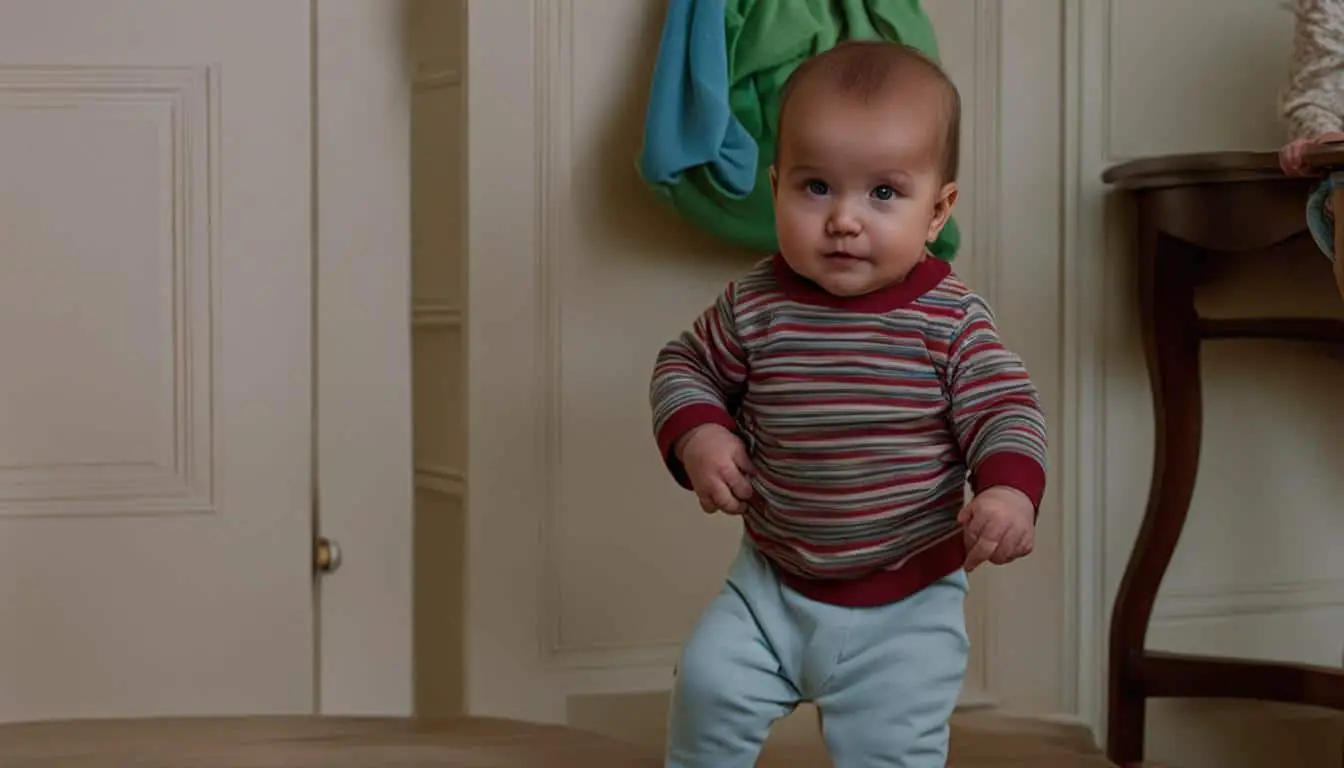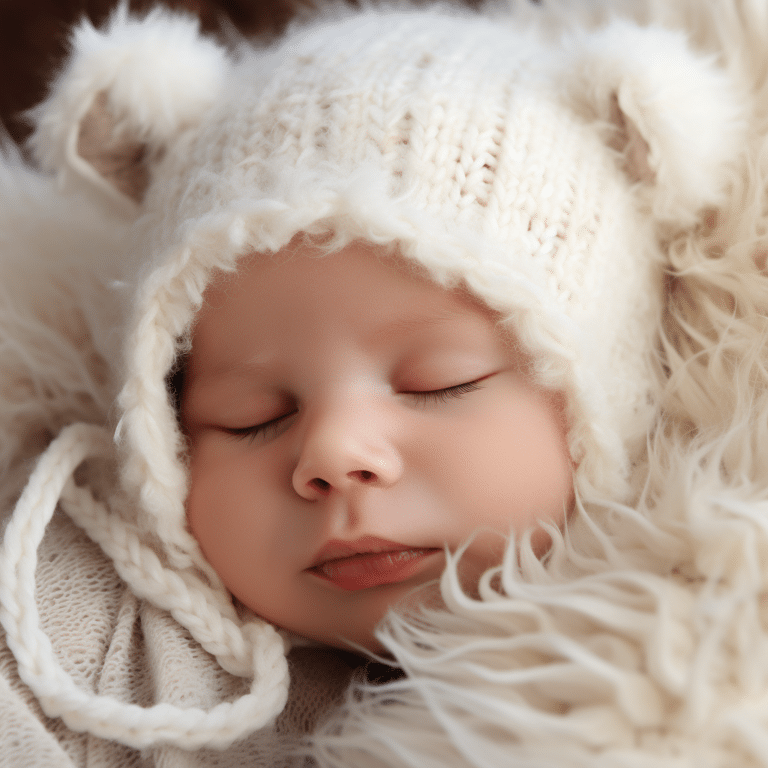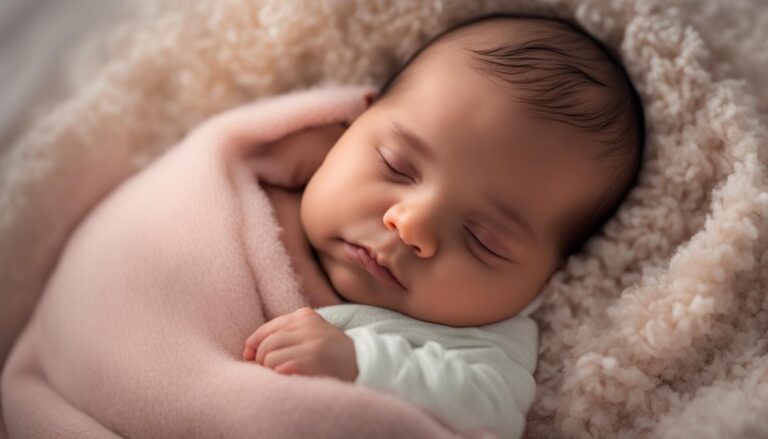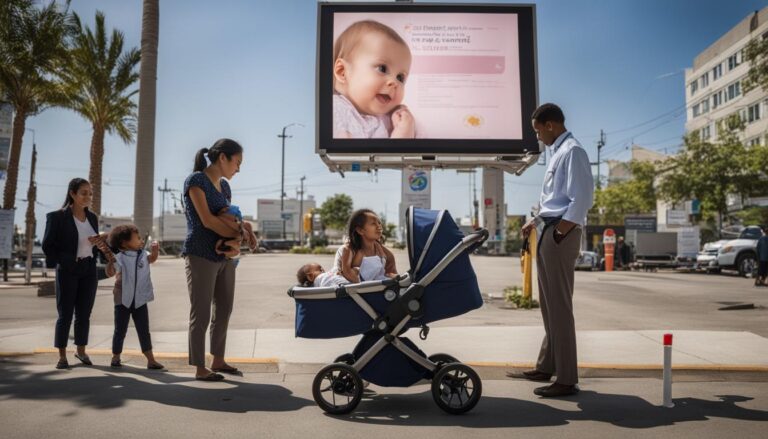The First Year: Milestones in Baby’s Development
In the first year of a baby’s life, they undergo incredible growth and development. It’s an exciting time filled with new experiences and precious moments. As a parent, it’s important to stay informed about the milestones your baby will reach during this crucial period. Understanding these milestones can help you track your baby’s progress and provide the necessary support and care.
Key Takeaways:
- Each baby develops at their own pace, so there is variation in when they reach specific milestones.
- The first year is a time of rapid growth and development for babies.
- Monitoring your baby’s milestones is important to ensure their overall health and well-being.
- Consulting with healthcare professionals can provide valuable guidance and support.
- Parenting advice and tips can help navigate the challenges and joys of the first year.
Developmental Milestones in the First Three Months
During the first three months of a baby’s life, they go through remarkable growth and development. While every baby develops at their own pace, there are certain milestones you can expect during this period. These milestones are crucial indicators of your baby’s progress and can provide valuable insights into their physical and cognitive development.
One of the most exciting milestones in the first three months is your baby’s ability to engage with you through smiling. By the end of this period, your baby may start to smile in response to your smiles, showing their growing social and emotional awareness. They may also attempt to get you to smile back, which is an adorable interaction for both you and your baby.
Another significant milestone is your baby’s developing motor skills. By the end of the first three months, your baby may be able to raise their head and chest when placed on their tummy. This indicates their strengthening neck and core muscles. They may also start to track objects with their eyes and bring their hands to their mouth, exploring their own body and developing hand-eye coordination.
Furthermore, your baby may show an increasing interest in their surroundings. They may start to grip objects, making swiping motions at dangling toys or other visually stimulating items. This demonstrates their growing curiosity and their ability to interact with the world around them.
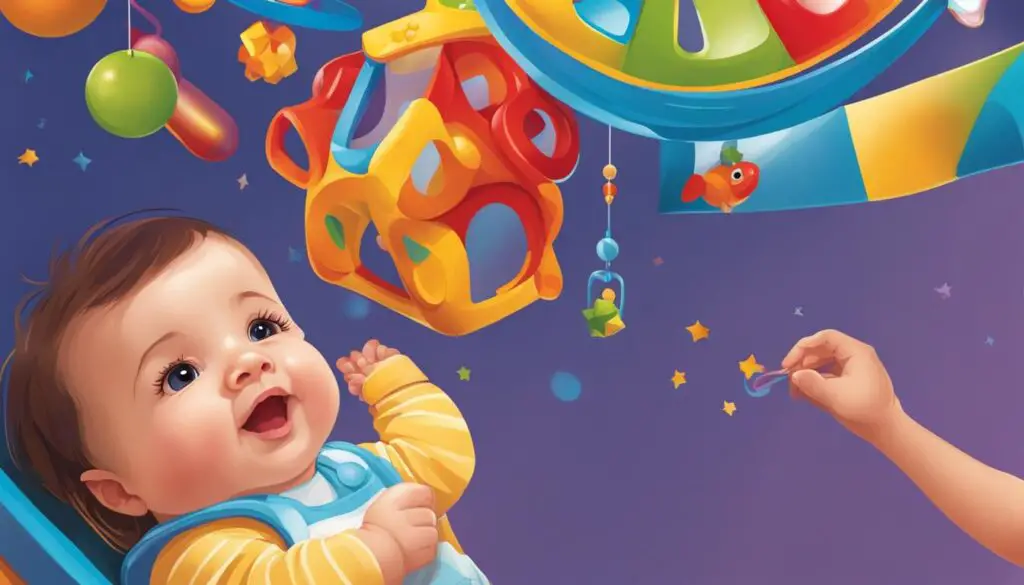
Developmental Milestones in the First Three Months:
| Milestone | Description |
|---|---|
| Smiling | Baby starts to smile in response to your smiles and attempts to get you to smile back. |
| Head and Chest Control | Baby can raise their head and chest when on their tummy, showing improved neck and core strength. |
| Eye Tracking | Baby can track objects with their eyes, following their movements and exploring their visual environment. |
| Hand-to-Mouth Movement | Baby brings their hands to their mouth, developing hand-eye coordination and exploring their own body. |
| Gripping Objects | Baby starts to grip objects and make swiping motions at dangling toys or visually stimulating items. |
These milestones provide an exciting glimpse into the incredible development happening during your baby’s first three months. Remember that every baby is unique and may reach these milestones at different times. It’s essential to celebrate each milestone your baby achieves and provide a supportive environment that encourages their growth and exploration.
Developmental Milestones in Four to Six Months
In the fourth to sixth month of a baby’s life, they continue to make significant developmental progress. During this stage, babies are becoming more active and curious about the world around them. They are also starting to develop more control over their bodies and engage in interactive behaviors.
One of the major milestones during this period is the ability to roll over from front to back and back to front. This newfound skill allows babies to explore their environment from different angles and build strength in their muscles. They may also start to babble, producing a variety of sounds and experimenting with different vocalizations.
Babies at this age are also becoming more adept at using their hands. They can reach out for objects and grab them with a more intentional grasp. This newfound hand-eye coordination opens up a whole new world of exploration for them. They may spend hours picking up toys, shaking them, and exploring their textures with their hands and mouths.
Additionally, babies in this age range may gain better head control and be able to sit up with support. This allows them to have a better view of their surroundings and participate in activities such as playing with toys or interacting with caregivers. It’s important to provide a safe and supportive environment to encourage their physical development.
“During the fourth to sixth month, babies are becoming more active and curious about the world around them.”
| Developmental Milestones in Four to Six Months | Description |
|---|---|
| Rolling over | Babies begin to roll over from front to back and back to front, increasing mobility and exploration. |
| Babbling | They engage in more vocalization, producing various sounds and experimenting with their voices. |
| Hand-eye coordination | Babies become more adept at using their hands, reaching for objects and grasping them intentionally. |
| Improved head control | They gain better control over their head movements and can sit up with support. |
Every baby develops at their own pace, so it’s important not to compare your baby’s progress to others. However, if you have concerns about your baby’s development, it’s always a good idea to consult with their pediatrician. They can provide guidance and reassurance to ensure your baby is on track for healthy development.
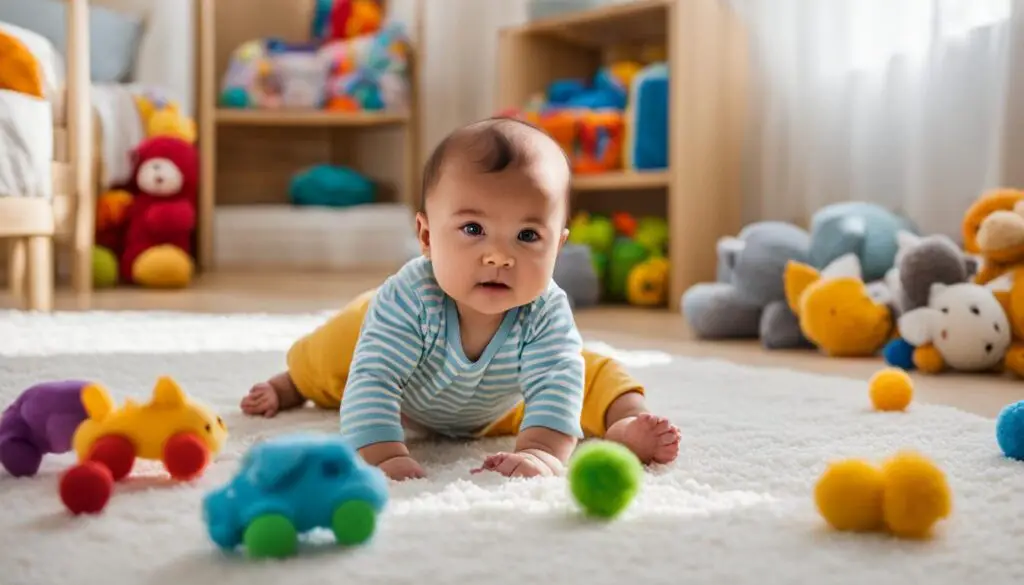
As your baby continues to grow, they will reach even more exciting milestones in the coming months. The next section will delve into the developmental milestones between seven to twelve months, including crawling, standing, and first words.
Developmental Milestones in Seven to Twelve Months
As your baby enters the final stage of their first year, you’ll notice exciting changes in their development. During this period, babies become more mobile and independent, eager to explore the world around them. Keep in mind that every baby develops at their own pace, so don’t worry if your little one is progressing at a slightly different rate.
Between seven to twelve months, you can expect your baby to start crawling, an important milestone that opens up a whole new level of exploration. They may also surprise you by sitting without support, responding eagerly to familiar words, and even clapping their hands in delight.
During this stage, you might witness the incredible moment when your baby pulls themselves up to a standing position for the first time. This is an exciting precursor to their first steps, which usually occur around the one-year mark. It’s perfectly normal if your baby takes a little longer or prefers to practice their newfound mobility by cruising along furniture.
As their motor skills continue to improve, your baby will also start experimenting with self-feeding. They may grab a spoon and attempt to feed themselves, even if most of the food ends up on their face or the floor. Encourage this exploration by offering soft finger foods and safe utensils appropriate for their age.
FAQ
When do babies typically start smiling?
By the end of the first three months, babies may start to smile in response to your smiles and attempt to get you to smile back.
What are some milestones babies reach at four to six months?
At this stage, babies may start to roll over from front to back, babble, laugh, and reach out for and grab objects. They may also gain better head control and be able to sit up with support.
What are some milestones babies reach at seven to twelve months?
In this stage, babies become more mobile and independent. They may start to crawl, sit without support, respond to familiar words, clap hands, and pull up to a standing position. They may also say their first words, begin feeding themselves, and take their first steps.
Is it normal for babies to reach milestones at different times?
Yes, each baby develops at their own pace and there is a wide variation in when they reach specific milestones. It’s important to remember that the timing of these milestones can vary greatly, and what’s most important is that your baby is progressing in their development.
